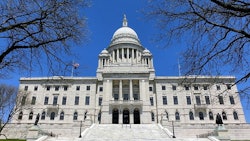
Pennington County Sheriff Kevin Thom and South Dakota Highway Patrol Col. Rick Miller have filed a lawsuit challenging Amendment A, South Dakota’s voter-approved adult-use cannabis legalization measure, arguing that it violates the state’s one-subject rule and the amendments and revisions article of the South Dakota Constitution, according to a Dakota News Now report.
South Dakota made history on Election Day when voters passed two separate measures to legalize both medical and adult-use cannabis in the state.
Amendment A is a constitutional amendment that legalizes the use of cannabis for adults 21 and older, and allows the possession of up to one ounce of cannabis per adult.
The lawsuit against Amendment A alleges that it violates South Dakota’s one-subject rule, which says voters can only amend one subject at a time, Dakota News Now reported. The plaintiffs argue that Amendment A actually has five subjects, according to the news outlet, which include legalizing cannabis, regulating cannabis, taxing cannabis, requiring the legislature to pass laws regarding hemp and ensuring access to medical cannabis.
The plaintiffs also argue that Amendment A does not amend the South Dakota Constitution, but actually revises it, according to Dakota News Now. An amendment is a “change to a specific part or subject,” the news outlet reported, while a revision is defined as a “fundamental change to the constitution.” A revision to the state’s constitution requires a three-fourths vote from both chambers of the South Dakota Legislature, the news outlet reported.
























